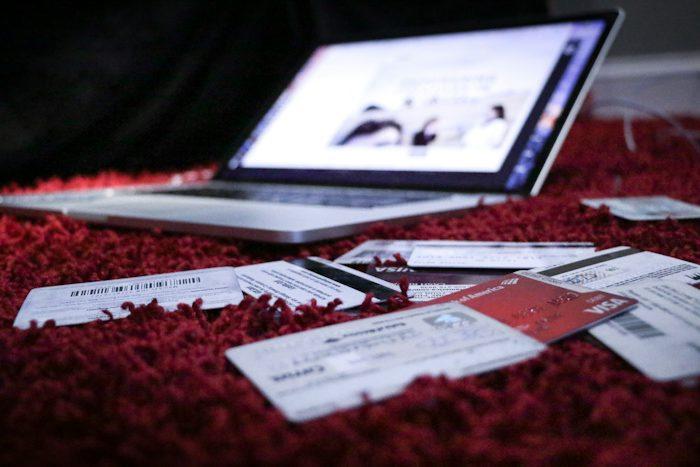22 Good Money Habits To Turn Your Finances Around

Cultivating good money habits is one of the first and crucial steps to financial stability. It can turn your finances around and put you on a path to a better future.
If you're ignorant of what good money habits to develop, this article highlights 22 of them. It also provides guidelines on how to cultivate a good money habit.
22 Good Money Habits To Turn Your Finances Around
1. Good Credit Score
If you're addicted to the use of credit cards, you can turn things around to your benefit by always paying your bills and credits on time. Doing this gives you access to lower interest rates, better insurance rates, higher credit limits, and better rental options.
Hence, keeping a good credit score is one of the good money habits to develop. Here are some ways to maintain and boost your credit score:
-
Pay off loans before due dates
-
Do not max out your credit limits
-
Conduct fact-checks on credit reports
-
Have a long credit history
2. Savings Plan
Developing the habit of saving money gives you financial security and peace of mind.
Once you receive a paycheck, set aside a certain percentage towards your saving goal. To make things easier, you can instruct your bank to automatically withdraw a certain amount once you receive your monthly income.
Overall, it is important to have a savings goal. Analyze your income and find out the perfect amount of money that can be deducted each month to meet your goal.
3. Focus On Paying Off Student Loans
Debts act as a hindrance to a better financial life. So, accumulating debts of any kind is a bad money habit.
If your goal is to develop a good money habit, focus on paying off the debts you owe. Budget all your finances, and direct a percentage of your income towards debt payment.
Once you cultivate the habit of setting aside an amount of money for debt repayment, you'll be without debt in no time.
4. Regular Review Of Expenses
Reviewing your monthly expenses can be a scary task. No one enjoys seeing the daily outflow of money from their account. But regardless of how scary it may be, you must develop the habit of reviewing your daily, weekly, and monthly expenses.
Conducting regular reviews of your income and expenditure enables you to discover how to build your savings and cut down on unnecessary spending.
5. Less Credit Card Debts

Using credit cards can be addicting. Being able to purchase whatever you want without having the funds for it can lead you into a financial hole that is difficult to climb out of.
Be content with what you have. If you can't afford something, do not be tempted to use a credit card.
6. Track Your Net worth
Make it a habit to always track your net worth. Your net worth is your total assets minus your debt and liabilities.
When you regularly keep track of your net worth, you'll become conscious of your spending habits, and more prone to making better financial decisions. Additionally, you'll be able to manage and avoid debts.
Net worth tracking acts as a means of motivation. It also helps you measure your financial progress.
Some of the apps that help you track your net worth include Empower, YNAB, Tiller, and Mint.
7. Have a Day To Focus On Your Finance
Decide on a day to focus on your finances. On this day, review your monthly expenses, sources of income, spending habits, unpaid debts, financial goals, budgeting plan, and credit score. Try to understand every aspect of your financial life.
Once you understand how your finances work, you'll make better financial decisions.
Every once a week, study your bank statement and highlight areas where changes are possible.

8. Focus On Your Needs
Many find it difficult to differentiate between what they need and what they want. If you're trying to build a good money habit, you need to specify your needs and focus solely on them.
Some needs to focus on include
-
Rent
-
Food
-
Mortgage loan
-
Transportation cost
-
Utilities
-
Needed clothing
-
Insurance.
Anything outside the above listed can be considered a want.
A want is any expense you can live without. If it isn't important and can be pushed back for several days, it's right to categorize it as a want.
When making budgeting plans, your needs should take up 50% of your income and your wants should take up 30%. The remaining 20% should go towards debt repayment or savings.
9. Learn From Financial Mistakes
Making financial mistakes is inevitable. You're bound to experience investment issues, poor budgeting plans, and careless spending during your journey to a better financial life.
Regardless of what you experience, make it a habit to always embrace and learn from your mistakes.
10. Have a Budgeting Plan
Many underestimate the importance of budgeting in a financial life. If you're aiming for financial stability, cultivate the habit of always having a budget.
A budgeting plan is a financial plan that analyzes your income and expenses. This plan helps you decide how to spend your money.
When you have a budget that covers your weekly and monthly activities, you'll be less likely to make financial mistakes.
Another Interesting Article: The #1 Key To A Successful Budget
11. Avoid Overspending
Unnecessary and careless spending is a bad money habit you need to put an end to. If you're finding it difficult to avoid overspending, here are some tips to help you.
-
Make a realistic budget for everything
-
Always have a shopping list when shopping
-
Make payments with cash
-
Avoid using credit cards
-
Use discounts and coupons
-
Make your meals
Social media, lack of financial awareness, and online shopping are some of the common reasons you overspend. If you find a way to go around these factors, you can put an end to your overspending habit.
12. Plan For Retirement
Another good money habit that can turn your finances around is setting aside a percentage of your income for retirement.
If you're a salaried employee, request a 401(k) plan from your company. Most companies offer this benefit to their employees. They automatically deduct a percentage of your income and deposit it into the account.
If you have no access to a 401(k) plan from your employer, open an IRA account.
13. Collect Coupons and Discounts
There's always a discount or coupon for every purchase you want to make. So before buying that grocery, ask the store cashier or manager if there are available discounts or coupons for a product.
Using discounts, cash backs, coupons, and gift cards can help you save money. Apps like Ibotta, Honey, the Coupon app, Drop, and Rakuten can help you discover discounts and coupons.
You can also participate in online surveys or watch ads to get rewarded with coupons, gift cards, and discounts.
Another Interesting Article: 12 Best Deal Sites: Bargain Shopping Sites for Coupons & Discounts
14. Learn About Money
Once you begin to read about money, you'll realize there's a lot to learn and unlearn.
If you want to grow your finances and turn things around for the better, build your financial knowledge. Tons of books and websites can be of help.
Some websites to help build your financial knowledge include the following:
- Paypant
- Investopedia
- Mint
- FINRA
- Better Investing
- $martPath
There are also tons of financial courses on Udemy, Coursera, and Khan Academy.
15. Pay Yourself First
Each time you receive your salary, make sure to pay yourself first. Paying yourself involves setting aside money for your budgeting and saving plan.
In addition, learn and master the zero-based budgeting method - this budgeting technique involves assigning a role to every dollar you make.
For example, if you make $5,000 per month, the zero-based budgeting method requires you to have a plan for every single dollar.
Once you have a plan for every dollar, you're less likely to engage in unnecessary expenses.

16. Cut Down On Living Expenses
Being able to detect areas where you can cut down on spending requires skills. To develop this skill, get into the habit of regularly reviewing every purchase you make and the bills you pay for.
Categorize your expenses into fixed and variable expenses. Fixed expenses are expenses that cannot be avoided. Changes to this type of bill are often not possible. And they include rent, mortgage payments, taxes, utility bills, and more.
Your grocery bills, TV subscriptions, gas, and personal care expenses fall under variable costs. Evaluate the expenses under this category, and find ways to save.
The more you cut down on expenses, the more you'll have to save. And saving money is one of the good money habits to develop.
17. Use Budgeting Apps
Making a realistic budgeting plan and sticking to it enables you to develop good money habits. However, the process of creating a budget can be tiring and overwhelming for most. If you can relate to this, try using budgeting applications to create your budgets.
Budgeting apps come with unique and advanced features to help you meet your financial goals. For example, if cutting down on your daily expenses is a money habit you wish to cultivate, budgeting apps like Rocket Money can help you achieve it.
PocketGuard, another budgeting app provides solutions that help you pay off your debts on time. YNAB uses a zero-based budgeting method to teach you accountability, while the Personal Wealth app enables you to invest and grow your money.
Another Interesting Article: 9 OF THE BEST BUDGETING APPS
18. Have Financial Goals
A goal acts as a source of motivation and inspiration to whosoever creates them. If you set a financial goal, you'll be spurred into taking actions that lead to the actualization of the goals.
Oftentimes, a financial goal is what you need to develop good money habits. Once you set a specific goal, you'll be required to build certain money habits in order to achieve the goal.
19. Have Financial Role Models
Having a financial mentor or role model is important to developing good money habits.
Role models and mentors have the ability to influence your decisions and behavior. And since you intend to develop good money habits, you must look up to a model with the ability to impact the right habits in you.
If you keep up with the celebrity lifestyle, you're more likely to make careless and unnecessary spending. So do not make celebrities or influencers your role model.
20. Invest

Making investments is one of the best money habits you can develop. This is because investment allows you to build wealth and be financially independent.
Tons of investment opportunities require as low as $10. Hence, you don't need to save huge amounts before making an investment.
Some best investments for as low as $10 include the S&P 500 Index Fund, stocks, and high-yield savings accounts.
Note: Do not make any investments blindly. You must learn and understand the world of investment to avoid losses.
21. Plan For Emergencies
When setting money for expenses, debt repayment, and savings, it is important that you also make plans for emergencies - this is a money habit that most people tend to ignore.
Emergencies can occur at any time. And if you have no plans for it, it can destabilize your finances and ruin all your goals.
To plan for emergencies, register for insurance or create an emergency account.
22. Use The 48-Hour Rule
The 48-hour rule is a money habit that can help you avoid impulse expenses. This rule requires you to wait for 48 hours (two days) before deciding on what to buy.
For example, if you think buying a new dress is important, use two days to re-evaluate your decision. If you still think the purchase is worth it, go ahead and buy it.
5 Simple Ways To Build Good Money Habits
If you're finding it difficult to build and maintain a good money habit, here are tips that can be of help to you.
1. Write Down Your Financial Goals: Putting down your goals in writing and placing them where you can always see them can cause you to stay motivated.
2. Use Budgeting Apps: Budgeting apps offer advanced features that make attaining your goals easier. Most apps send out daily notifications and provide fun activities to help you cultivate good money habits.
3. Have a Goal Partner: Find a friend, work colleague, or family member who shares similar financial goals as you. Plan together and be each other's guide.
4. Automate Savings: Most banks offer services that automatically deduct money from your paycheck. This money is usually deposited into a locked high-yield savings account.
Requesting this service from your bank allows you to develop good savings habits.
5. Make Payments In Cash: Paying in cash for purchases or services makes you conscious of your financial situation. This consciousness helps you in building better money habits.
7 Bad Money Habits You Need To Stop
To develop good money habits, you need to put an end to your previous bad habits. Before you deny having any bad money habits, read the following:
1. Using Loans To Pay Your Bills: If you rely on loans to pay off your bills without having a reliable source of income, you're heading toward a financial hole.
Taking out loans is inevitable. But if you keep depending on it to pay your bills, there's a high chance you're living beyond your means. Reevaluate your entire spending habits and find ways to cut down expenses.
2. Dipping Into Your Savings: Stop interfering with your savings goals. It's a bad money habit that can hinder your financial progress.
You need to develop discipline or create a locked savings account.
3. Spending As Much As You Earn: If the monthly expenses you make equal your total monthly income, you're making bad financial decisions.
Take a step back and reevaluate your entire financial life. Your current lifestyle will take you nowhere. It'll be difficult for you to save, amass wealth, or meet your financial goals.
4. Letting Debts Accumulate: Letting all your money go into debt repayment can be overwhelming. But no matter how downcast you feel, do not let your debts accumulate.
Accumulated debts come with tons of disadvantages. Some of which include bad credit scores and higher interest rates.
5. Not Making A Budget: Life without a financial budget is like going on a journey without direction - You're bound to get lost.
One of the reasons your finances are not going the way you want it is because you do not have a realistic budget.
6. Absence of Emergency Funds: If your budgeting plan does not include plans or funds for emergencies, you're practicing bad money habits.
Create a high-yield savings account for emergencies. This type of account allows you to earn high-interest rates on your deposits.
7. Saving Without A Goal: If you're saving money just for the sake of it, you'll be more likely to dip into your savings.
When saving, attach a goal to it. Doing this keeps you motivated.
Final Thoughts
A journey of a thousand miles begins with a step. If you're finding it difficult to develop any of the good money habits listed above, do not give up. Consistency is key to achieving good money habits.
Frequently Asked Questions On Money Habits
How Can I Be Financially Smart?
To be financially smart, you need to broaden your financial knowledge, learn from mistakes, track your spending, and create realistic budgets.
How Do You Break Bad Spending Habits?
Setting a monthly budgeting plan, making grocery lists before shopping, and reducing your credit card usage can help you break your bad spending habits.
https://paypant.com/22-good-money-habits-to-turn-your-finances-around/

Comments
Post a Comment